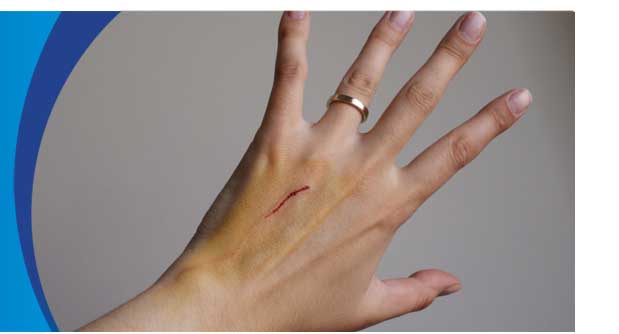Tetanus
Tetanus, commonly called lockjaw, is a bacterial disease that affects the nervous system. It is contracted through a cut or wound that becomes contaminated with tetanus bacteria. The bacteria can get in through even a tiny pinprick or scratch, but deep puncture wounds or cuts like those made by nails or knives are especially susceptible to infection with tetanus. Tetanus bacteria are present worldwide and are commonly found in soil, dust and manure. Infection with tetanus causes severe muscle spasms, leading to "locking" of the jaw so the patient cannot open his/her mouth or swallow, and may even lead to death by suffocation. Tetanus is not transmitted from person to person.
Prevention
Vaccination is the best way to protect against tetanus. Due to widespread immunization, tetanus is now a rare disease in the U.S. A combination shot, called the Td vaccine, protects against both tetanus and diphtheria. A Td booster shot is recommended every 10 years. Adults who have never received immunization against tetanus should start with a 3-dose primary series given over 7-12 months.
Symptoms
Symptoms usually begin 8 days after the infection, but may range in onset from 3 days to 3 weeks
Who should get the TD vaccine?
Vaccine Safety
Tetanus vaccine and the combination Td vaccine are very safe and effective. When side effects do occur, they usually include soreness, redness or swelling at the injection site and a slight fever. As with any medicine, there are very small risks that serious problems could occur after getting a vaccine such as an allergic reaction or neurologic condition. However, the potential risks associated with tetanus disease are much greater than the potential risks associated with the tetanus vaccine. You cannot get tetanus from the vaccine.
Facts about Tetanus
Other vaccines may be given at the same time as TD.
